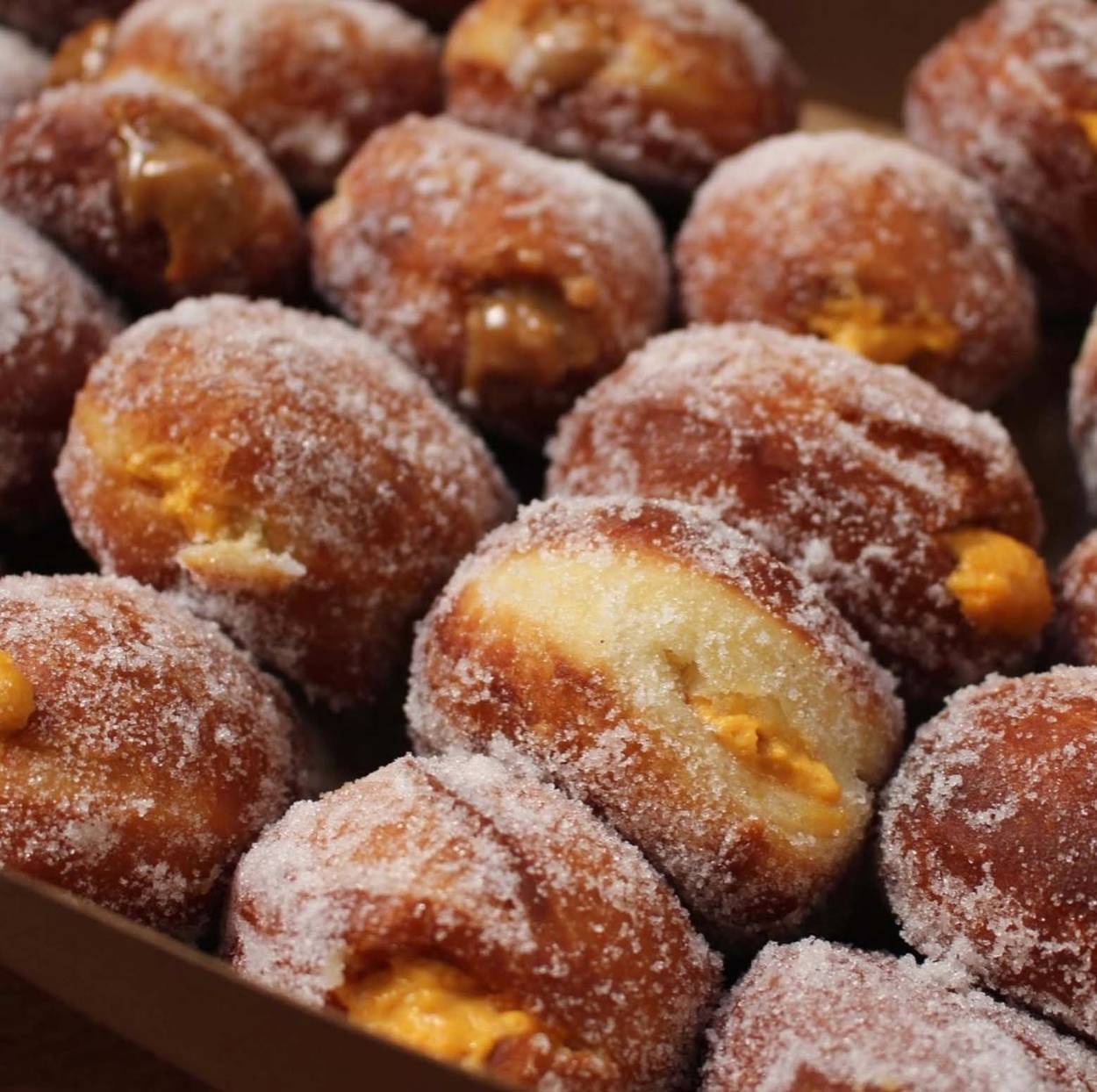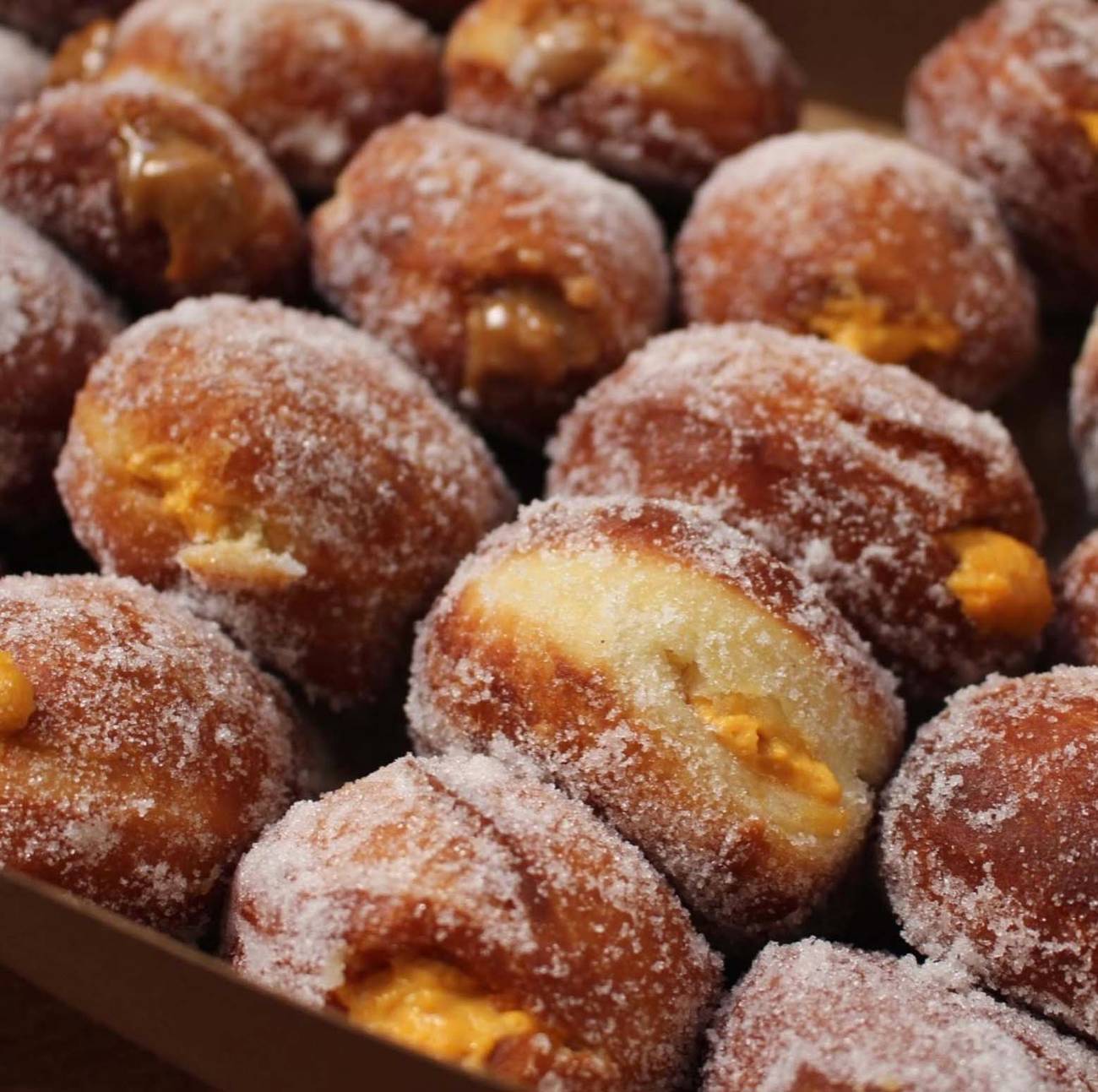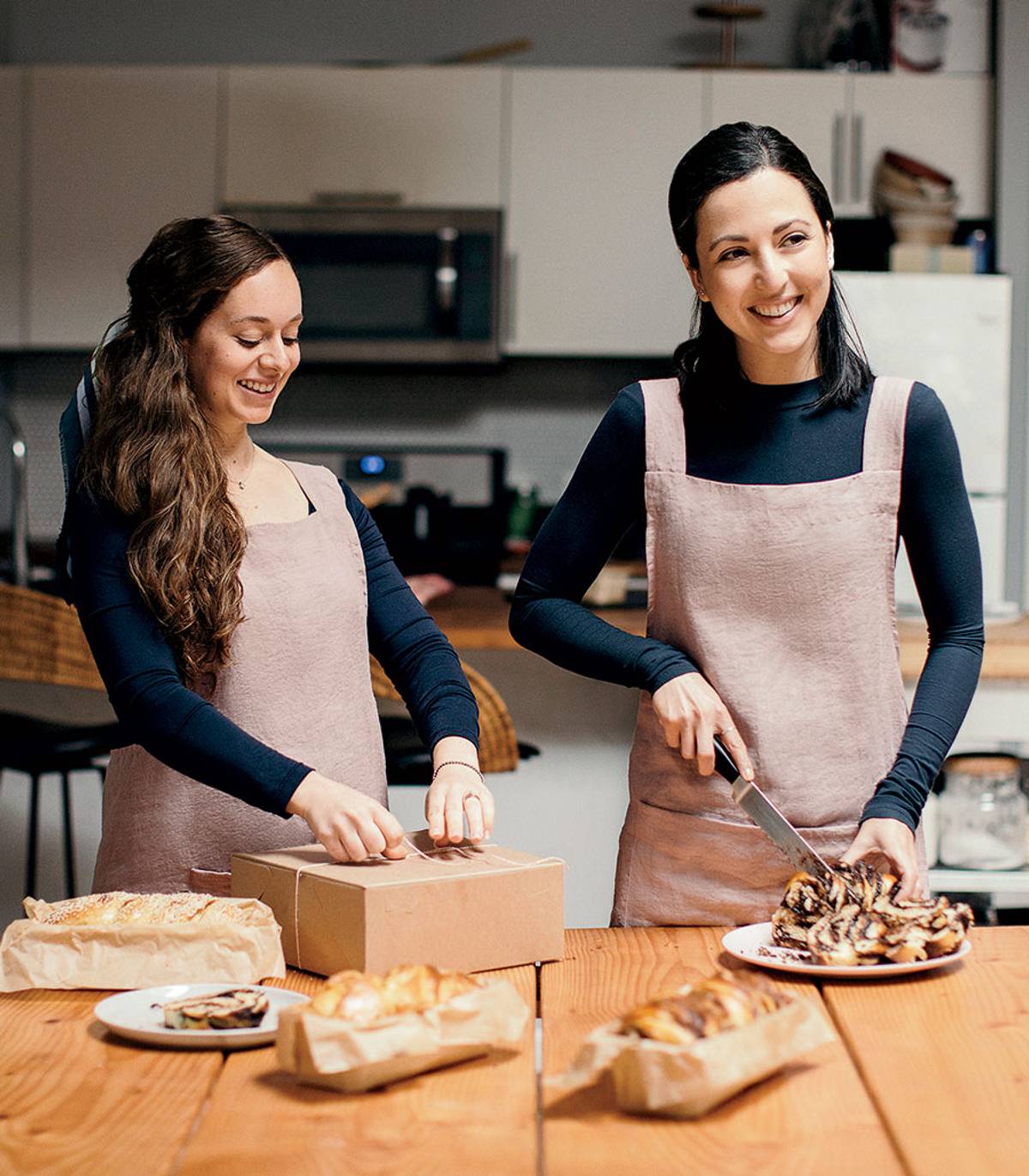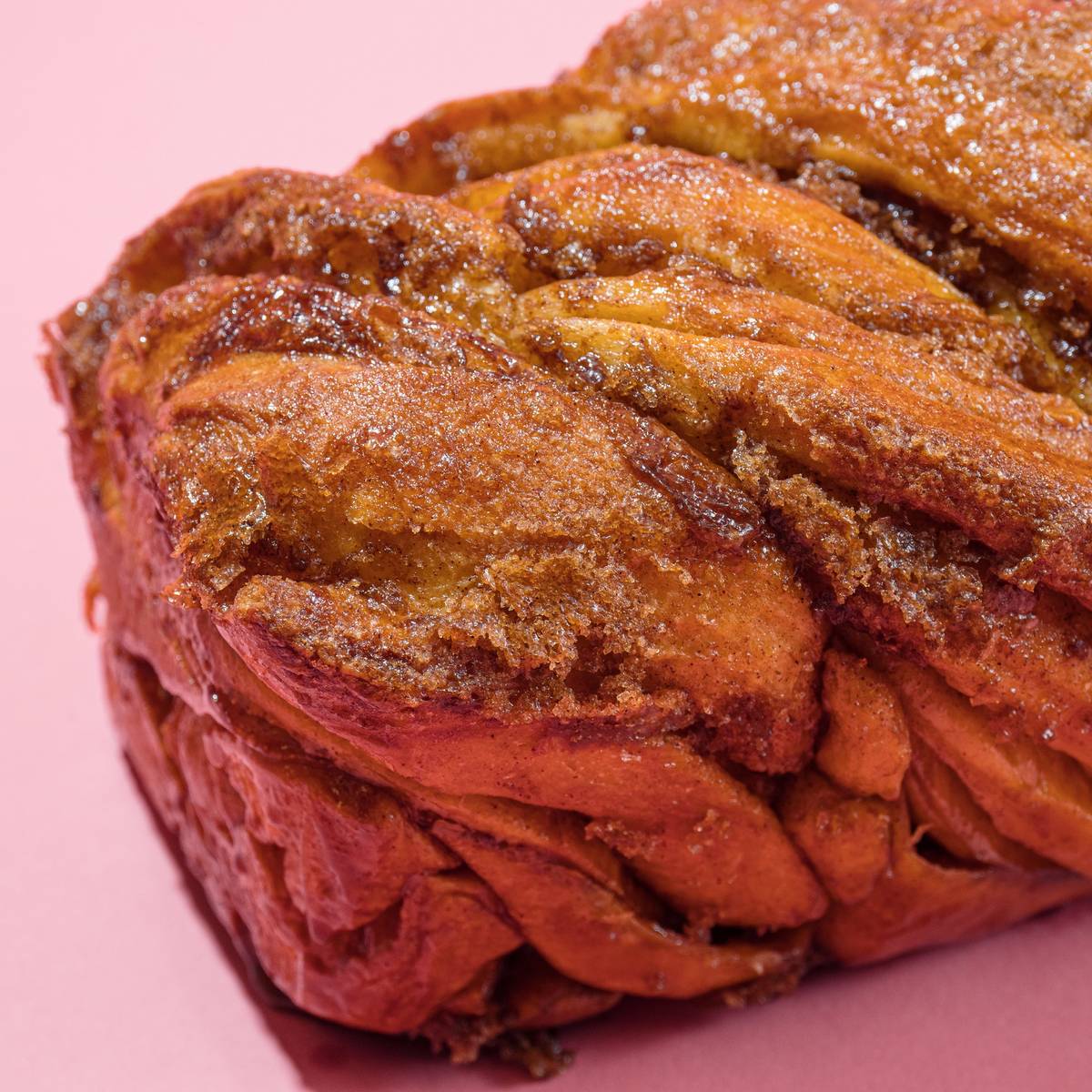Putting a Mexican Spin on Jewish Pastries—and Vice Versa
At Chicago’s Masa Madre bakery, the owners blend their backgrounds to create new recipes, from their popular cinnamon churro babka to their dulce de leche-filled sufganiyot for Hanukkah




Inside Masa Madre’s bakery kitchen, the scent of yeast, flour, and buttery caramel fills the air. One baker stamps out pillowy rounds of sufganiyot dough, preparing them for their bath in hot oil, while another pipes dulce de leche and cafe con leche cream into the still-sizzling doughnuts. It is almost Hanukkah, and there is a mountain of orders to fill.
A few years ago, when friends Tamar Fasja Unikel and Elena Vázquez Felgueres started selling homemade sourdough bread at Chicago farmers markets and through Instagram, they could not have envisioned becoming the Windy City’s most sought after artisanal Jewish bakery. But then they started making babka.
“Sourdough was very time-consuming to prepare, and since we were both baking from our homes, it took up all the fridge space,” Fasja Unikel said. “It wasn’t worth it.” The women started experimenting with babka and playing around with flavor combinations (they launched with matcha and white chocolate) until they landed upon something truly personal: a plush cinnamon babka inspired by the warm-sweet flavor and crisp texture of Mexican churros. “As we regrouped, we realized we had these two backgrounds that were so amazing, food- and culture-wise, and there was potential to expand on that,” she said.
Masa Madre’s cinnamon churro babka was an immediate hit with customers, and the team realized the power of merging Fasja Unikel’s Jewish background (she was raised in Mexico with Syrian ancestry on her father’s side and Polish and Lithuanian ancestry on her mother’s side) with both women’s shared Mexican backgrounds. Today, Masa Madre, which means “mother dough,” turns out several other babka varieties, including one flavored with café de olla, a traditional Mexican coffee, and a tres leches babka made with condensed and evaporated milks and heavy cream. Their pistachio cardamom babka, meanwhile, nods to Fasja Unikel’s Middle Eastern roots.
Merging their identities in the other direction, the Masa Madre team also bakes Mexican pastries with a Jewish twist. Their vanilla cream-filled conchas, for example, are made with rich challah dough, rather than the traditionally airy concha dough. That same dough is also used to make traditional braided challah, which Masa Madre flavors with Mexican hibiscus flowers and za’atar. And to cover it? They partner with the Mexico-based artist and activist Macedonia Blas Flores to offer handcrafted challah covers.

“We quickly noticed how excited people were about the fusion of flavors from the two backgrounds,” Vázquez Felgueres said. Word began to spread locally about the bakery, and after an article written in a local publication, their orders began to skyrocket. “I still have the piece of paper we originally used to try and organize how to make all these orders,” Vázquez Felgueres said. “We didn’t even have a website yet! It was very overwhelming for a bit.”
Through a contest run by The Hatchery, a food-business incubator in Chicago, they transferred operations from their respective home kitchens into a private commercial kitchen (and later a bigger one in the same facility), which helped them to scale up their farmers market business and local deliveries while launching nationwide shipping. It also allowed them to hire a staff of four additional bakers, gave them the space to teach baking classes over Zoom, which they have done a lot of during the pandemic, and to dream up new and seasonal products, like this year’s sufganiyot.
“Our ideas usually begin with a craving or a flavor that we miss from Mexico,” said Vázquez Felgueres, who did not grow up Jewish but coincidentally ate a braided bread very similar to challah (though made with butter instead of oil) as a child. “My mother used to make it every Christmas, and I have memories of everyone just waiting for it to get out of the oven,” she said. When she and Fasja Unikel met as fashion-school students in Mexico City, they quickly connected over a shared love of food as well as design.

Fasja Unikel grew up eating a mix of Jewish food traditions from the Sephardi and Ashkenazi sides of her family. Her grandmother on her mother’s side opened a bakery called Hadasa in Mexico City nearly 50 years ago, and Fasja Unikel has memories of going there as a child to make rugelach, cakes, and other pastries. “The bakery is still going strong today,” she said.
Through a series of coincidences (namely Fasja Unikel’s husband starting a master’s program at the University of Chicago and Vázquez Felgueres’ wife studying at the School of the Art Institute), both women ended up relocating to Chicago. Once there, they reconnected and bonded over feeling a bit unsettled in their new city. Vázquez Felgueres, who had transitioned away from the world of fashion to go to culinary school, worked in a few Chicago-based bakeries before Fasja Unikel, who had also gravitated toward baking, approached her about going into business together.
When they first started making products inspired by their Jewish and Mexican backgrounds, the women knew they had hit upon something that resonated for them. But it turns out, Chicagoans felt similarly. “This city has large Jewish and Mexican and Latino populations,” Vázquez Felgueres said. “We did not realize it at the start, but it is the perfect place for these cultures to come together.” The team hopes to eventually find an independent bakery space in the city where they can set down more permanent roots. They may have both moved to Chicago for love, but they are staying for the babka.